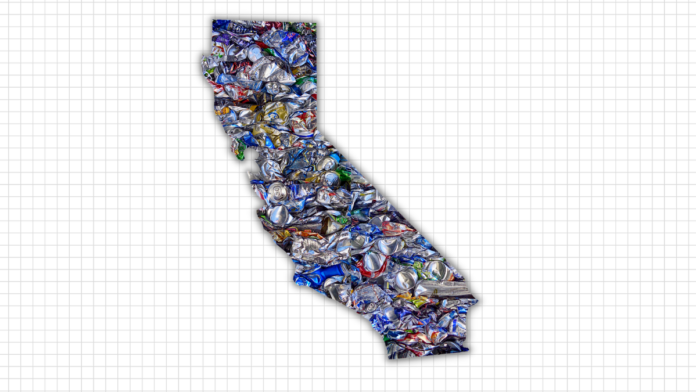Earlier this month Governor Gavin Newsom of California signed a recycling-focused legislative package intended to create consumer awareness and accountability within the plastics industry. Governor Newsom has praised the measures as “bold investments to transform our recycling systems.” However, critics are concerned that portions of the governor’s plan will end up doing more harm than good when it comes to expanding California’s recycling efforts.
The new legislation is part of Governor Newsom’s historic California Comeback Plan which, according to the State of California’s website, includes $270 million towards supporting “a circular economy that advances sustainability and helps reduce short-lived climate pollutants from the waste sector.” In addition, the package of legislation is aimed at increasing “demand for recyclables and attract[ing] green industry to California.”
Not everyone is on board with the new legislation. Creighton Magid, a partner at the law firm of Dorsey & Whitney, takes issue with Senate Bill Number 343. The bill, which was introduced by State Senator Ben Allen of Santa Monica and passed by the legislature, is an expansion of California’s 2018 Truth in Environmental Advertising laws.
Much of SB 343 focuses on the prevention of advertising that misleads or deceives consumers regarding the impact plastic products can have on the environment. Additionally, the bill requires the California Department of Resources Recycling and Recovery “to evaluate whether a product or packaging is recyclable in the state and is of a material type and form that routinely become feedstock used in the production of new products and packaging” by January 1, 2024.
Magid, who specializes in plastics litigation, believes “the law could have a chilling effect on efforts to expand recycling.” He explained, “There are a number of items that are highly recycled today, including cardboard, aluminum cans and PET water bottles. There are a large number of products that are only now beginning to be recycled, due to improvements in technology, rising prices for post-consumer resins, and more efficient markets for post-consumer materials.”
The recycling of polypropylene plastics, for example, has gained much traction in recent years. However, polypropylene is not yet recycled to the extent that other popular resins, such as PET plastics, are. As a result, it is likely that polypropylene will be deemed “non-recyclable” by California’s new evaluation process.
Steve Alexander, President and CEO of the Association of Plastic Recyclers (APR), explained in a statement, “…we continue to have strong concerns that language in the bill could interfere with the growth of emerging recycling markets, potentially reducing volumes of material collected, especially for developing markets such as film plastics and polypropylene.”
Magid insists the law “imposes a huge new risk for anyone promoting new recycling technologies, developing new products or investing in recycling infrastructure or markets: if CalRecycle decides that the particular product in which you’ve invested can’t claim to be recyclable, you’ve lost your investment.”
Magid is concerned that the law will make it difficult for manufacturers to get their hands on post-consumer recycled content, or PCR. PCR materials are made from recycled consumer waste such as aluminum, plastic bottles, and paper products. These materials can be turned into PCR plastics which are used for packaging and more. Magid questions, “if SB343 discourages recycling of all but the most obviously recyclable products, where are manufacturers going to get the post-consumer feedstock?”
Furthermore, Magid warns that the bill could negatively affect the likelihood of eligible products to be recycled in other parts of the country. “Because California is such a large market, it will be very difficult for product sellers to include the “chasing arrows” symbol or otherwise indicate that their product can be and should be recycled anywhere in the country if it doesn’t make CalRecycle’s list,” Magid states.
Opponents of the bill, such as Magid, will be watching CalRecycle closely in the upcoming months and years as it clarifies what materials will meet its criteria for recyclability.
- Seltzer Category Expanded for 2022 Craft Beer Marketing Awards - February 11, 2022
- Drifter Expands Portfolio with Nordic-Style Gin - January 18, 2022
- Tilray Acquires Green Flash and Alpine Beer - December 22, 2021














